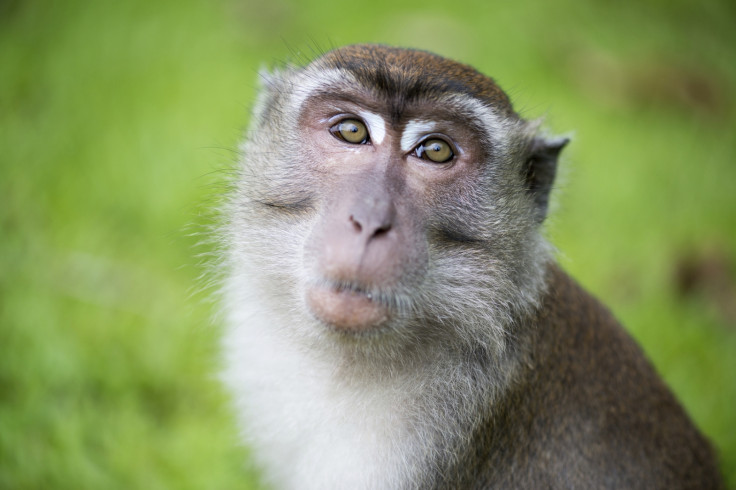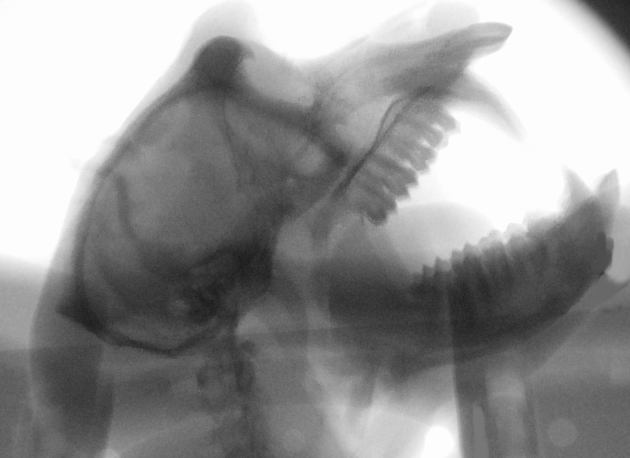Planet of the Apes? This is what a talking monkey would sound like (it's really creepy)
A monkey voice simulation says: 'Will you marry me?'
Monkeys have all the vocal equipment necessary to speak, they just don't have the brain networks to learn a human language, scientists have found. But now we know what monkeys would sound like if they did know how to speak.
Macaque monkeys don't talk, they grunt. Researchers took X-ray videos of the anatomy of macaques as they made their grunting calls. They tracked the movements of the monkeys' faces, tongues, and larynxes to see how the monkeys used them to make sounds.
Close to speech
The video showed that monkeys could use their anatomy in similar ways to how humans do. This overturns previous studies based on post-mortem examinations of monkeys, which suggested that monkeys and apes could make only a very limited range of sounds.
The researchers put these measurements into a computer simulation that was able to emulate how a monkey would sound if it used its vocal anatomy in the same way that humans do. The results may sound a little husky, but they are clearly intelligible words.

Origins of language
The findings also throw light on the evolution of language. Evolutionary biologists and psychologists have argued for 40 years that it is our unique anatomy that allows humans and not other species to speak. The study on macaques shows that this is not the case, and humans' capacity for speech lies in the brain.
"Macaques have a speech-ready vocal tract but lack a speech-ready brain to control it," the authors write in their paper published in the journal Science Advances.

"Now nobody can say that it's something about the vocal anatomy that keeps monkeys from being able to speak – it has to be something in the brain," says study author Asif Ghazanfar of Princeton University in the US. "Now, the interesting question is, what is it in the human brain that makes it special?"
"This new result tells us that there's still a big mystery concerning where human speech came from," says Laurie Santos, a psychologist at Yale University, who was not involved in the research. "The paper opens whole new doors for finding the key to the uniqueness of humans' unparalleled language ability.
"If a species as old as a macaque has a vocal tract capable of speech, then we really need to find the reason that this didn't translate for later primates into the kind of speech sounds that humans produce," she says. "I think that means we're in for some exciting new answers soon."
© Copyright IBTimes 2025. All rights reserved.






















